Decarbonization is a Major Challenge for US Ports -Report
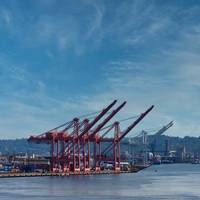
A large number of ports across the United States are making headway toward ambitious decarbonization targets, but many are running up against significant challenges that threaten their progress, according to a new report from classification society ABS and trade group the American Association of Port Authorities (AAPA).Financial constraints, low technology readiness and physical space limitations are among key obstacles identified the ABS and AAPA report, "Port Decarbonization Survey: Trends and Lessons Learned"…
ABS Head Wiernicki Sees Global Carbon Tax on Shipping on the Horizon
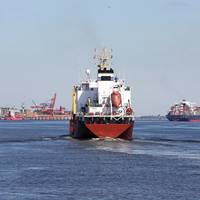
ABS chairman and CEO, Christopher J. Wiernicki, said he sees a universal, global carbon tax on shipping on the horizon, as alternative blue fuels made with carbon capture emerge as a growing part of the maritime industry's ongoing energy transition.“We need to recognize that there is an intermediate step in the energy transition,” Wiernicki said during an appearance at the CERAWeek energy conference. “Last year the conversations were focused on going from oil to a green fuel economy.
Updated Framework Released for Comparing Decarbonization Technologies
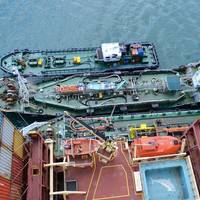
The Maritime Technologies Forum (MTF) has released an updated Framework for Assessing Decarbonization Technologies and Alternative Energy Carriers and a comprehensive assessment on the maturity and readiness of alternative fuel options, expanding the number of evaluated fuels covered since the previous heatmap report issued in November 2022.The assessment applied MTF’s recently updated framework to an expanded set of eight fuels, including fossil LNG, fossil MGO combined with carbon capture and storage (CCS)…
Amogy Completes Technology Verification Phase with LR
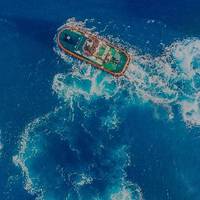
Ammonia power solutions company Amogy on Wednesday announced it has completed its Technology Verification phase with classification society Lloyd’s Register.This includes the assessment and certification of novel technologies through its Technology Qualification process where novel technologies are evaluated in terms of their technology maturity and associated risks. The first phase was undertaken in 2022, during which the technology readiness level of its core components and system interfaces were identified and assessed.
Renewable Production Needed to Make Methanol a Viable Marine Fuel -LR
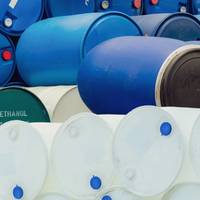
As technology feasibility continues to grow for methanol as a marine fuel, the main challenges for the industry’s adoption of it are investment and community readiness, according to a new report from Lloyd’s Register (LR).The report, "Fuel for Thought: Methanol", found that technology for methanol usage as a marine fuel is feasible, available and mature in certain cases. Most engine makers will have dual fuel engine models in the near term, and there is significant evidence of interest from shipowners.
EU Backs Project to Minimize Methane Slip from Marine Engines

A consortium has secured European Union funding to develop solutions minimizing methane slip from marine engines, advancing the environmental and climate benefits of liquefied natural gas (LNG) as a ship fuel.Coordinated by VTT Technical Research Centre of Finland, the Green Ray project brings together several companies from across the shipping value chain: shipyard Chantiers de l’Atlantique, ship owner CMA CGA, classification society DNV GL, technology group Wärtsilä, the Finnish Meteorological Institute…
Aurelia’s 100% Hydrogen-powered Design Gets RINA Approval
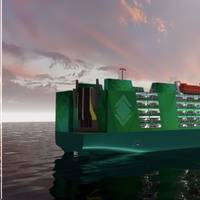
Aurelia Green Ship Concept Design's newly unveiled ship design featuring 100% hydrogen propulsion has received approval in principle (AIP) from RINA based on the newly published RINA Rules for Hydrogen Fueled Ships and the RINA Guide for the Approval in Principle of Novel Technologies.The new design concept is the ACD01 1000, a RoRo vessel with electric propulsion using highly compressed H2 as fuel. Beyond the green design, the difference is marked by the ship's hydrogen-based engine system…
Bombora Wraps Up Tank Testing of Floating Hybrid Energy Platform
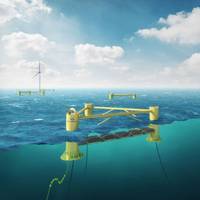
Wave energy converter developer Bombora Wave Power (Bombora) has completed tank testing of a floating foundation system suitable for the InSPIRE solution, where Bombora's mWave technology is combined with a wind turbine onto a single floating offshore platform.An adapted version of the semi-submersible INSPIRE platform, developed in partnership with TechnipFMC, underwent tank testing evaluations to confirm the system loads and dynamics at the FloWave test facility at the University of Edinburgh.Head of Loads and Modelling at Bombora…
Navy Establishing Unmanned Surface Vessel Fleet for Persistent ISR in Middle East
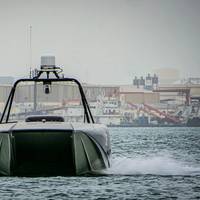
“We're not tinkering. We're building enhanced maritime domain awareness.”The U.S. Navy’s Task Force 59, based in Bahrain as part of the U.S. Naval Forces Central Command (NAVCENT) and U.S. Fifth Fleet, is advancing the operational employment and integration of unmanned systems and artificial intelligence in fleet operations.According to Vice Adm. Brad Cooper, the fleet commander, unmanned systems and artificial intelligence are helping to accelerate innovation, especially in such a vast area of responsibility (AOR)“It's 5…
Acta Marine Orders Methanol-fueled CSOVs
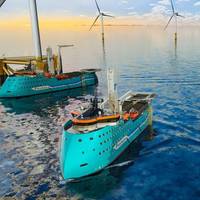
Dutch offshore services provider Acta Marine announced it has signed a contract for the construction of two methanol MDO/HVO powered DP2 construction service operation vessels (CSOVs) at Turkish shipyard Tersan with two optional vessels for delivery at a later stage. The vessels are primarily aimed at the offshore wind construction market and carry the new SX-216 TWIN-X Stern design from Ulstein Design & Solutions AS that was exclusively designed for and in cooperation with Acta…
Allseas' Subsea Mining Ship Project is Moving Forward
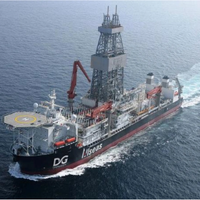
Swiss-based Allseas has awarded Dutch subsea technology company Seatools the contract for the delivery of the complete electrical, hydraulic and control system for Allseas’ deep-sea mining nodule collector.Driven by the green energy transition, the interest in high-grade seafloor polymetallic nodule deposits has risen in the past few years due to the depleting terrestrial deposits for metals such as copper, nickel, manganese and cobalt. Nevertheless, subsea mining does not take place on a commercial scale yet as current technology readiness levels fall short.Last year…
LR’s Nick Brown: Climate Emergency is “same magnitude, different time domain" to COVID-19
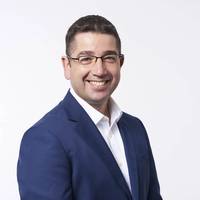
As the maritime industry settles in on a COVID-19 induced ‘new norm,’ and long-range planning is dramatically shortened,, Nick Brown, Marine and Offshore Director, Lloyd’s Register, said that while much deserved focus must be paid to the current crisis, the industry cannot lose sight of another one looming just as large: climate change. “We strongly maintain that the climate emergency is an event of the same magnitude, just with a different time domain to COVID-19," Brown told Maritime Reporter & Engineering News recently.
Study: Achieving Net Zero Impacts OPEX not CAPEX
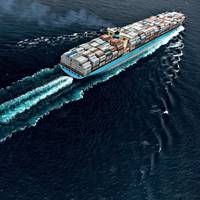
A joint Lloyd’s Register (LR) and A.P. Moller – Maersk study assessing the transition to zero carbon fuels has found that the cost of transport will rise – not because ships themselves will require greater levels of investment but because new fuels are projected to be significantly more expensive than existing fossil solutions which will lead to increased operating costs.According to the study partners, achieving net zero is therefore an operating expense (OPEX) not a capital expenditure (CAPEX) challenge.
Interview: Dr. Catherine Warner, Director, NATO CMRE
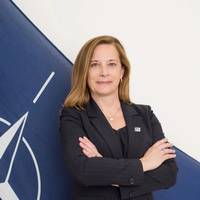
At CMRE, it’s not just about the science. It’s about building trust and confidence in resilient systems. An interview with Dr. Catherine Warner, Director, NATO Center for Maritime Research and Experimentation, La Spezia, ItalyTell us a little about yourself and CMRE. What does CMRE do, and how do you see your mission evolving?I came here from the Pentagon, where I was the science advisor for the director of operational test and evaluation. My experience has been working with operators on systems that they’re getting ready to field.
New Thruster Solutions Developed for Arctic Shipping
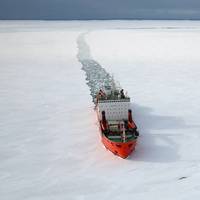
A team of European marine research institutes and companies have developed creative technologies for thruster solutions that are specifically engineered for ships operating in the Arctic.With the new solutions created under the three-year ArTEco project led by Finland's VTT and Wärtsilä, thruster lifetimes can be increased, their maintenance need can be decreased and their reliability improved, particularly in extreme conditions, the project partners said.While at sea, a ship must overcome tough resistance as it displaces water masses from its path.
Ship Tech: U.S. Coast Guard R&D Center
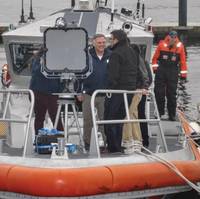
The U.S. Coast Guard Research and Development Center (RDC) in New London, Connecticut, is the service's only command conducting research, development, test and evaluation (RDT&E) support for all 11 statutory missions. Since its commissioning in 1972, RDC has been involved in over 2,000 projects and initiatives that have significantly benefited the Coast Guard and the components of the Maritime Transportation System. As the demand for research and development capability grows within the service…
Autonomous Shipping Test Site Opens in Norway
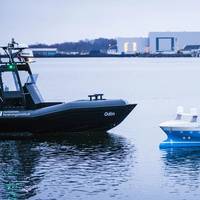
Norway’s newest autonomous shipping test site is now officially open and ready to support the development of high-tech autonomous maritime solutions. Building on Norway’s leading position within the burgeoning autonomous shipping segment, the new test-bed in Horten is designed to offer Norwegian and international organizations a convenient, safe, non-congested space to trial new technology and vessels as the third of its kind in the country and the fourth such approved area in the world.
MAN’s Subsea Compressors Reach Field Proven Status
Both subsea compression trains at Statoil’s Åsgard field have achieved more than 25,000 operation hours with an availability close to 100 percent. The world’s first subsea gas compression facility features two MAN Diesel & Turbo HOFIM motor-compressor units. The Åsgard subsea compression system has officially reached the highest Technology Readiness Level (TRL) 7 with both trains surpassing 10,000 operating hours. The subsea facility demonstrated an availability close to 100 percent - the very few interruptions were caused by failure of the power supply from the vessel. “MAN Diesel & Turbo’s persistence in driving technology solutions…
Europe to Build Ships of the Future
A new European research project seeks to revolutionize the shipbuilding sector by replacing steel with composite materials for the construction of more efficient large length ships. FIBRESHIP is an ambitious project that will allow for the construction of light commercial vessels, passenger and leisure transport and oceanographic vessels more than 50 meters in length using fibre reinforced polymer (FRP) composite materials. It is one of the largest innovation projects funded by the EU with a budget of €11 million, of which €9 million is funded by the EU’s Horizon 2020 Programme. The project involves 18 international entities representing the European shipping and shipbuilding industry from 11 countries including Cyprus…
Finalists Complete for $2 Mln Wave Energy Prize
U.S. The U.S. Department of Energy (DOE) announced that nine teams have been named finalists in the Wave Energy Prize—a 20-month design-build-test competition—and will proceed to the next phase of the competition. The nine finalists and two alternates, identified from the 17 remaining official qualified teams, will continue their quest to double the energy captured from ocean waves and win a prize purse totaling more than $2 million. Each of the finalists and alternates will now receive seed funding from DOE to develop 1/20th scale models of their wave energy converter (WEC) technologies. These models will be tested at the nation's most advanced wave-making facility…
Technology Readiness Levels Defined for Oil Spill Response
Bureau of Safety and Environmental Enforcement (BSEE) staff participated in a workgroup meeting at the bureau's Ohmsett facility in Leonardo, N.J., as part of the workgroup’s efforts to define Technology Readiness Levels for use in the oil spill response community. BSEE staff discussed the criteria that could be used to determine the readiness of technology with equipment manufacturers, industry, and facility representatives, drawing from their different perspectives and expertise. These discussions are part of the BSEE-funded project Technology Readiness Level Definitions for Oil Spill Response Technologies and Equipment. The project’s goal is to develop a uniform and objective method to quantify the maturity level of a new technology from concept to use offshore.
MARAD to Host META Program
The Maritime Administration (MARAD), in cooperation with the Maryland Environmental Resource Center, will hold an open forum to solicit input on the Agency’s Maritime Environmental and Technical Assistance (META) Program and key environmental issues facing maritime transportation. Specific topics of discussion will include how MARAD might be able to better focus requests for proposals, and how to address various levels of technology readiness. Input received will inform MARAD and Department of Transportation decision making regarding possible future research, development and demonstration projects. The META program seeks to foster collaborative efforts among Federal agencies, academia, industry and the public to address critical marine transportation environmental issues.
NASA to Further Develop Titan Submarine Design
Step forward the Titan Submarine, a proposal that NASA has just awarded a second round of funding through their Innovative Advanced Concepts (NIAC) program. It is very much just a concept at the moment, but it is promising nonetheless. Aside from Earth, Titan is the only place in the solar system that has bodies of liquid on its surface, making it a rather attractive place to explore. But while a number of proposals have been put forward to take a closer look, none have come to fruition. Phase II of the Titan Submarine: Exploring the Kraken Mare effort will focus on advancing the Technology Readiness Level (TRL) of the concept by (1) retiring risks found in the Phase I design…







